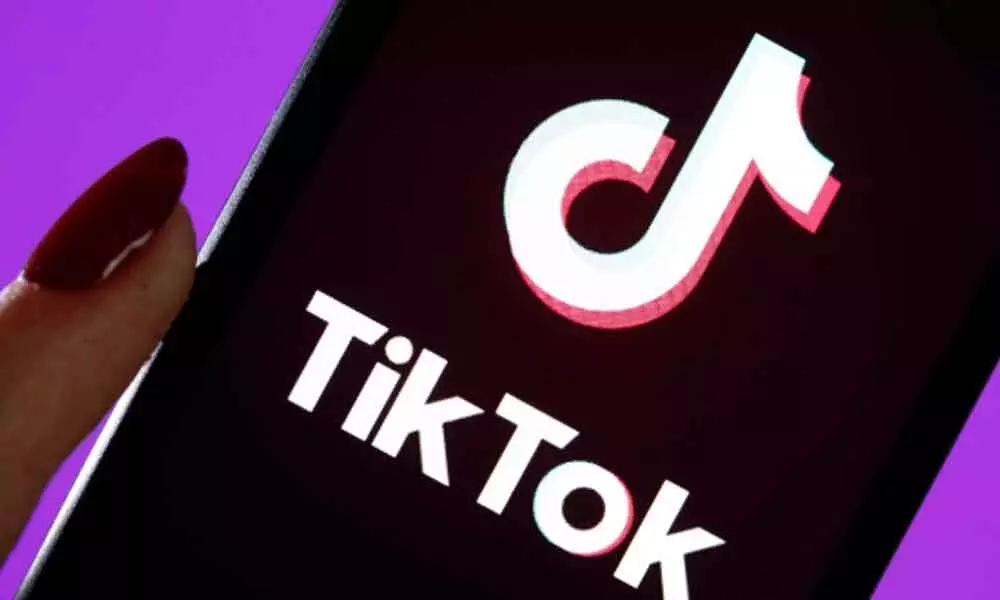TikTok Has a Monster 2020
 TikTok
TikTokTikTok drove growth in kids' social app use by 100% in 2019 and 200% in 2020
TikTok, the ByteDance-owned app whose fading into irrelevance have been predicting for quite a year now, and that absolute least — has yet to arrive.
A new study on kids' app usage and habits indicates a serious threat to YouTube's dominance, as kids now split their time between Google's online video platform and other apps, like TikTok, Netflix and mobile games like Roblox. Kids ages four to fifteen now spend a mean of 85 minutes per day watching YouTube videos, compared with 80 minutes per day spent on TikTok. The latter app also drove growth in kids' social app use by 100% in 2019 and 200% in 2020, the report found.
So basically, before TikTok, kids used social apps a particular amount by 2019, they started using TikTok which amount doubled, then by this year, it had tripled. If you're performing on a social app, this is often an honest sign that you do something right.
And so it pains excruciatingly — to mention that if you've got been reading The Interface for the past couple years, all this might have come as a surprise. Since ByteDance bought Musical.ly in 2018 and fused it with another app to make the feeling referred to as TikTok, have been impatiently awaiting its demise.
Last August, it was about how competition, regulation, and user retention problems could thwart TikTok's ambitions. In November it was about how Congress and therefore the Council for Foreign Investment within the US were putting the squeeze on ByteDance — and about how the company's past run-ins with the Chinese government had created a credibility gap with US regulators. In December it was warning about looming competition again, and by January ByteDance could be preparing to sell TikTok off.
Looking back, we don't believe that any of these predictions were irrational, exactly. All were supported things that were happening. Competitors were launching; regulators were beginning to ask questions; users were churning. But it's clear that we've underestimated TikTok in two critical ways: one, the appeal of the core product, which is much more potent than ever gave it credit for; and two, ByteDance's nimbleness in responding to those challenges and that we overestimated the competition, which has thus far been weak; and therefore the regulators, who have mostly stuck to angrily shaking their fists at the sky within the American tradition.
So what's working?
One, ByteDance is printing money, and money is power. TikTok itself generates significant revenue through advertising and in-app purchases, and ByteDance's growing portfolio of apps has created a fund it can use to reinvest in TikTok's success. Here are Katie Roof and Zheping Huang in Bloomberg.
The company owes much of its success to TikTok, now the web repository of choice for lip-synching and dance videos by American teens. The ambitious company is additionally pushing aggressively into a plethora of latest arenas from gaming and search to music. ByteDance could fetch a valuation of between $150 billion and $180 billion in an initial public offering, a premium relative to sales of the maximum amount as 20% to Tencent because of a bigger global footprint and burgeoning games business, estimated Ke Yan, Singapore-based analyst with DZT Research.
"None of the Chinese tech companies has achieved this level of success within the global market before ByteDance," he said, adding neither social media company harbours much debt. "The incontrovertible fact that ByteDance is making a profit, if true, and sitting on a $6 billion cash pile means it's not during a rush in the least to return to plug to boost capital.
Two, TikTok keeps finding new users. My old view was that when ByteDance stopped buying new installs on Facebook, TikTok's growth would level off. Instead, the pandemic hit, American teens were locked indoors for weeks on end, and TikTok became the foremost downloaded app within the world — installed 315 million times within the half-moon. Consistent with third-party data and reaching quite 2 billion cumulative downloads within the current quarter.
Three, ByteDance has rapidly levelled up its lobbying game. It hired its first American lobbyists a year ago, and in November hired a former congressman in anticipation of more regulatory pressure. Last month it hired the prominent executive Kevin Mayer faraway from Disney to be TikTok's CEO, giving ByteDance a face of the American place of business to travel before Congress. Ask how the Communist Party of China might decide to use TikTok as a part of an influence campaign. And to that the last point, PingWest reported in the week that ByteDance would begin restricting the access Chinese engineers have TikTok's code base.
There are good reasons to be skeptical about the data issue, as Ben Thompson laid out in the week at Stratechery. "There are two problems here," he wrote. "First, who goes to verify this, and second, the more concerning possibility to my mind isn't such a lot user-data but rather the type of algorithmic control that would considerably sway hearts and minds. That, technically, isn't 'sensitive data', it just happens to be compelling data."
I don't know what ByteDance could do to convince us that it'll never, ever share American user data with the Chinese government or allow state agents to control its algorithms. At an equivalent time, in recent weeks, I even have felt like TikTok is functioning to create trust where it can. After a current issue during which view counts were improperly displayed for videos associated with Black Lives Matter protests — a part of a pattern during which content from minority communities has appeared to get lower distribution. TikTok established a creator diversity council and donated $3 million to nonprofits supporting the black community.
What impressed us weren't the moves themselves such a lot because the speed with which TikTok made them: you can't move that quickly unless you're attuned to your user base, which bodes well for the corporate as future crises inevitably arise.
The question is how long TikTok is going to be ready to serve that user base before some conflict with China's broader interests materializes. For ByteDance, this is often not a theoretical question, as Alex Heath, Yunan Zhang and Jessica E. Lessin wrote within the Information:
The government sees the media as an essential instrument of internal control and increasingly as a tool for projecting its views on the international stage. For instance, in early 2018, after the govt pack up Toutiao for twenty-four hours for posting "pornographic and vulgar content," ByteDance hired 2,000 content moderators, giving preference to Communist Party members in its recruitment.
But at now, the mere existence of a threat to ByteDance not persuades me that the corporate won't find how to crush it. Skepticism may be a reporter's most valuable tool, but it ceases to be useful the instant it blinds you to the facts. TikTok isn't just a fluke blockbuster — it's a durable one. Whatever problems lie the road, and I'm sure there'll be plenty, the smallest amount I can do is to prevent underestimating it.

















